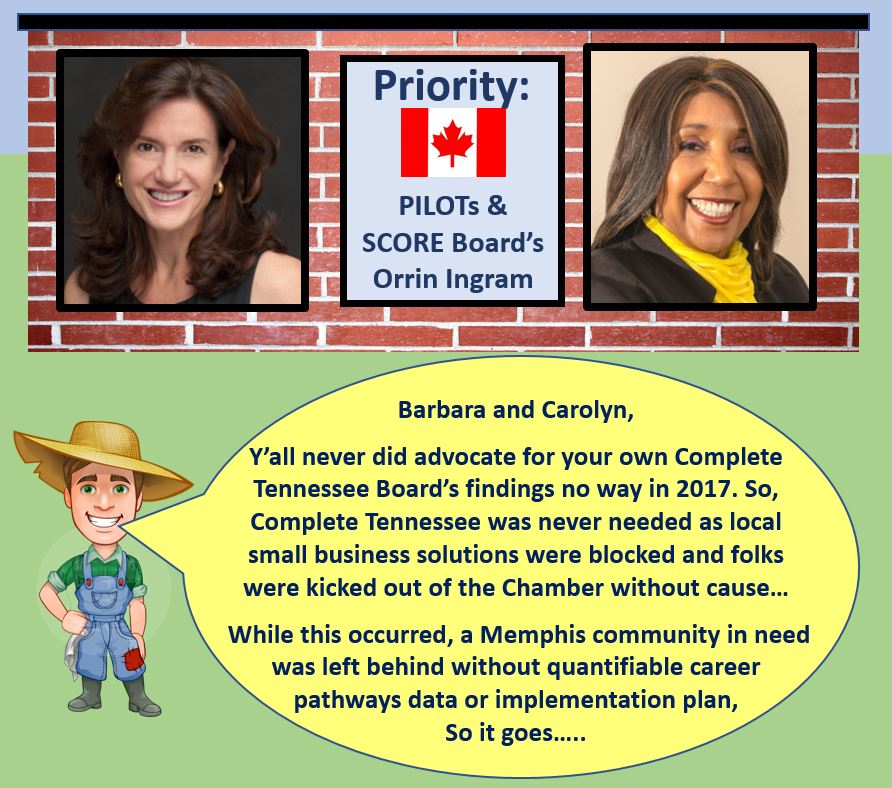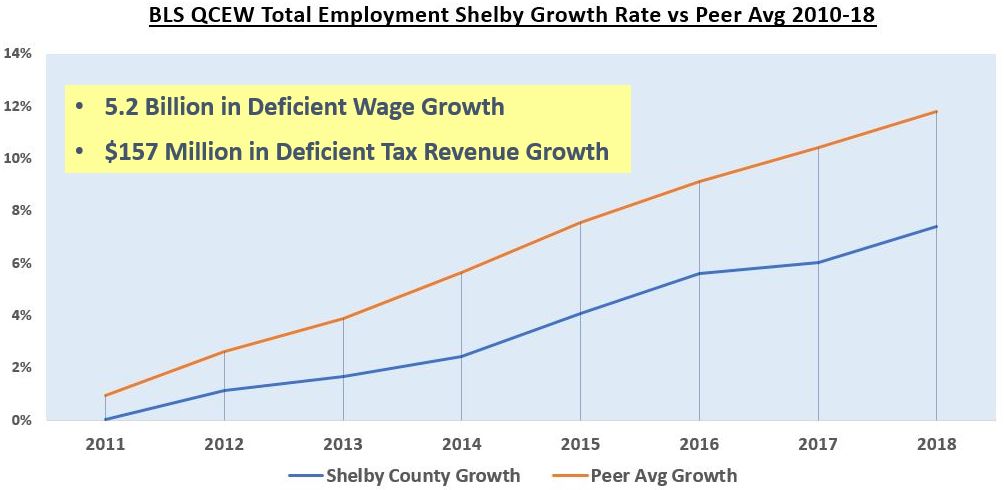Complete Tennessee was never needed anyway as featured in the Daily Memphian. Locally, Complete Tennessee was redundant to what the Greater Memphis Alliance for Competitive Workforce (GMACW) was to do but wasn’t doing in connecting local workforce development efforts. GMACW was founded out of the FedEx/Memphis Tomorrow and Chamber Chairman’s circle complex with FedEx originally as GMACW’s chief private sponsor. But, in practice, connecting local workforce development efforts was never the chief economic development priority as excessive PILOTs have been and continue to be.
After all, with workforce the stated #1 priority, the EDGE/GMACW Board has failed to hold a public board meeting in the last year as they have met every month to award PILOTs. All the while local small local business solutions have been systematically locally blocked within a closed economic system so Canadian contracts could be protected that didn’t work or so that a billionaire out of Nashville in Orrin Ingram, who sits on the SCORE Board, could have plenty of time to get his new Youscience venture off the ground. In the meantime, 100,000 students and a Memphis community in need have gone without connected workforce development services for a period of 4 years.
And even if Complete Tennessee were needed, local Complete Tennessee Board members in Barbara Hyde and Carolyn Hardy didn’t take up the 2017 Complete Tennessee findings by publicly advocating for a sense of urgency with interventions or solutions on the matter. There is still no published employer demand quantitative data, articulation of career pathways or connected research based career pathways implementation plan for Memphis. Related to the Memphis region, the Complete Tennessee 2017 study states:
Institutions voiced concerns about understanding the region’s labor market priorities. Inversely, local industry expressed frustrations with the timeliness of student completion, often desiring micro-credential programs as a way to meet pressing needs for both employers and low-income citizens. Additionally, participants stressed the importance of clear career pathways for students that align with regional workforce demands.
In the meantime, as I advocated for a research based solution as a Greater Memphis Chamber member, with my local small business, it was blocked by the Chamber of which Carolyn Hardy was Board Chairman at the time in 2017. The Chamber kicked me out without written cause while not providing me with a copy of the Chamber bylaws or my membership rights as 100,000 students and a community in need went without connected services. Now, that is a closed economic system that shuts out local small business and community in need with employer connected education/workforce development services.
At the same time, employment severely lags the peer average costing taxpayers millions. It was never about the Memphis/Shelby taxpayer, a community in need or supporting locally owned small business. It was always about Canadian contract awards or an order for SCORE Board member, billionaire Orrin Ingram, while local connected workforce development services were being botched from the top of the Memphis ecosystem as the same hacks obstruct Memphis growth.


